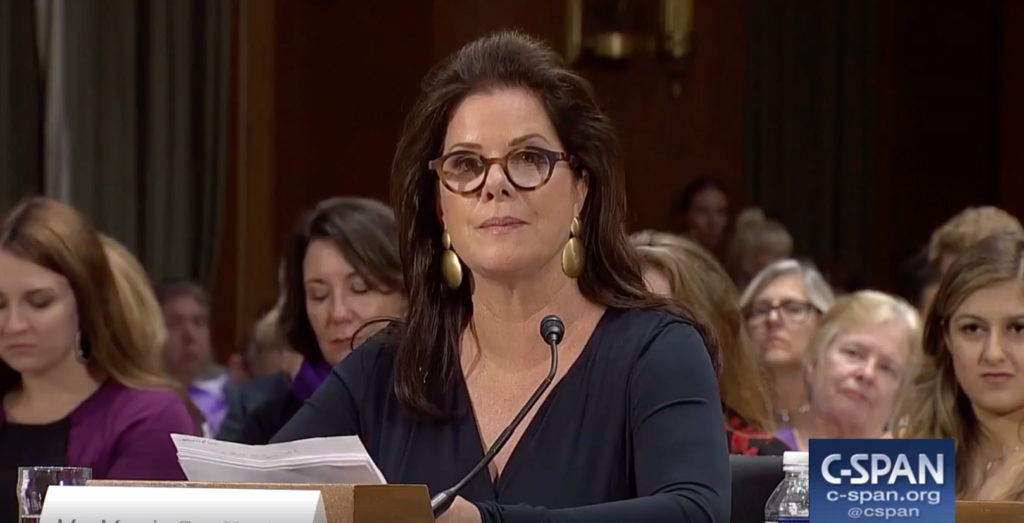

By Emily Birnbaum

Academy Award-winning actress Marcia Gay Harden testified before Congress on Tuesday at a hearing on Alzheimer’s disease, urging lawmakers to invest more money in research and prevention efforts.
“It is my prayer that with your help, advocacy, and funding, this generation is able to celebrate the first survivor of Alzheimer’s disease,” Harden said at the hearing, hosted by the Senate Special Committee on Aging.
Around 1,200 Alzheimer’s advocates flooded onto Capitol Hill on Tuesday to lobby their lawmakers on behalf of legislation to improve care.
The advocates are in town for the thirtieth Alzheimer Association annual forum, where people from across the country come to Washington to mobilize and discuss the latest in Alzheimer’s research.
Harden is a member of the association.
The hearing room was filled with purple: there were about 200 advocates adorned in purple and many of the lawmakers on the committee wore purple suits.
Sen. Susan Collins (D-Maine), a longtime advocate for those with Alzheimer’s and their caregivers, spoke about the symbolism of her purple clothes.
“Many of you will recognize this suit who have been here before,” Collins said. “I bought it 15 years ago and I swore I would not retire it until we had better treatments or a cure for Alzheimer’s.”
“It’s woefully out of style and I’m really sick of it so let’s get on with the job,” she added.
At the beginning of the hearing, Collins said there were 37 co-sponsors for the Building Our Largest Dementia (BOLD) Infrastructure for Alzheimer’s Act, legislation focused on early detection and prevention of Alzheimer’s.
By the end of the hearing, she announced there were 40, with Sens. Joe Donnelly (D-Ind.), Kirsten Gillibrand (D-N.Y.) and Michael Bennett (D-Colo.) signing on.
The witnesses and lawmakers shared their personal connections to the cause.
“I don’t have to show signs of breast cancer to get a mammogram,” Harden said. “Maybe [Alzheimer’s detection] becomes something so commonplace we don’t need to ask.”
Alzheimer Association advocates are lobbying for an additional $425 million for Alzheimer’s and dementia research at the NIH for fiscal 2019, and for passage of the BOLD Act, and the Palliative Care and Hospice Education and Training Act.
“Within the room itself, there was an emotional understanding that only comes from being heard. People had flown from all over the United States for that very reason, to be heard,” said Harden about the hearing.
“I loved seeing the process, it was a very civilized and yet encompassing bipartisan process, wherein our elected officials did their duty to the American people, rather than their personal parties.”